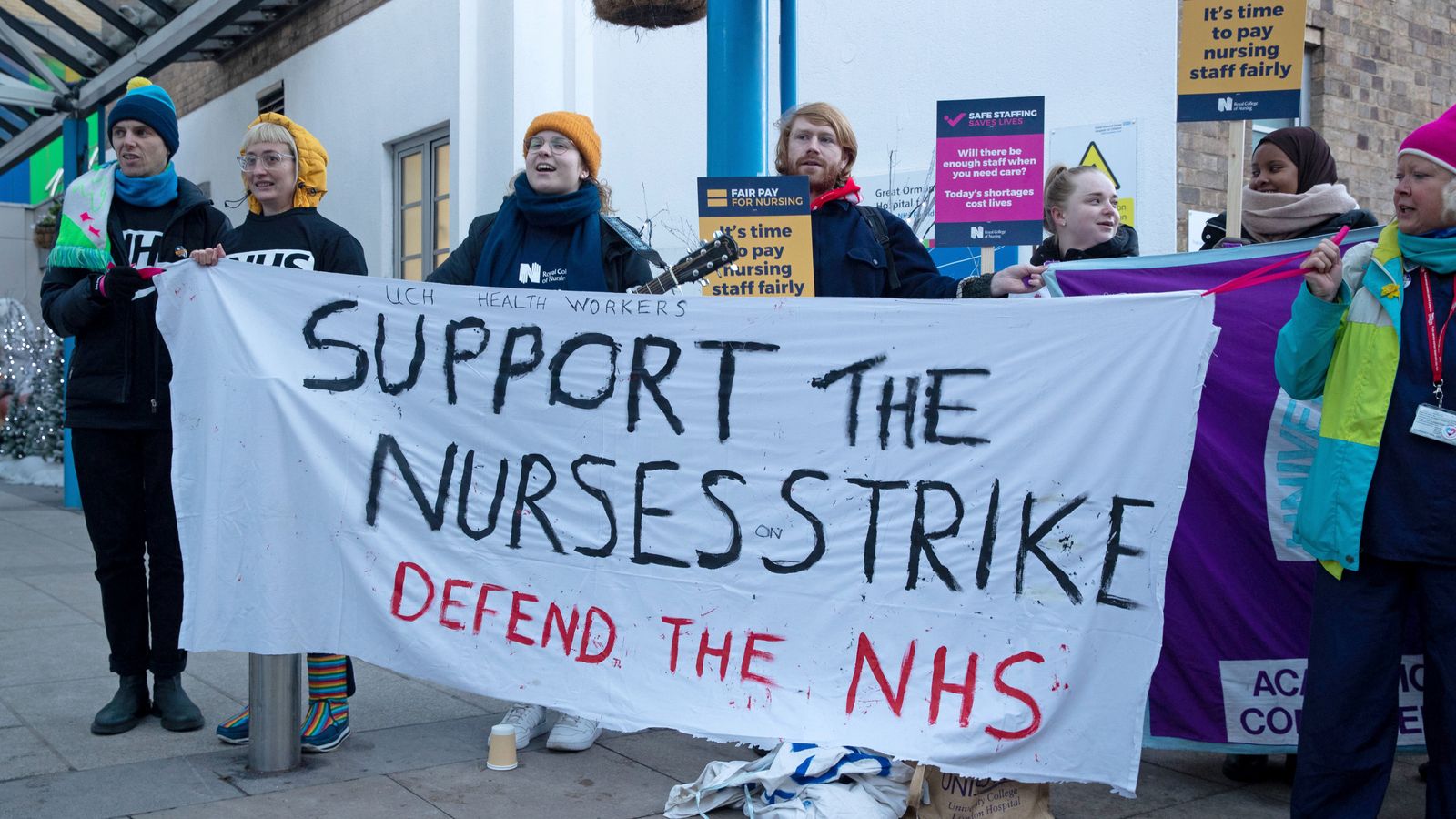Nurses’ Strike in the United Kingdom: A Resolute Stand for Healthcare Reform
Throughout history, nurses have been the unwavering pillars of healthcare, dedicating their lives to caring for the sick and vulnerable. In the United Kingdom, the nursing profession has reached a breaking point, prompting a momentous nationwide strike. This article explores the underlying reasons behind this pivotal movement, its impact on healthcare services, and the urgent need for comprehensive reforms to address the concerns raised by the courageous nursing workforce.
There is no direct relation between nurses’ strikes in the UK and the Criminal Records Bureau (CRB) checks. However, it is important to note that nurses, like other healthcare professionals, are required to undergo background checks, including Disclosure and Barring Service (DBS) checks in the UK. DBS application previously known as CRB checks, are conducted to ensure the safety and protection of vulnerable individuals who may come into contact with healthcare professionals. These checks aim to identify any criminal convictions, cautions, reprimands, or warnings that a nurse may have. There are also Enhanced DBS checks and Basic DBS checks.
Nurses’ Strike in the United Kingdom: A Resolute Stand for Healthcare Reform
A Cry for Recognition and Support:
The nurses’ strike in the United Kingdom signifies a desperate plea for recognition and support. Nurses have long been undervalued and overburdened, grappling with challenges such as chronic understaffing, inadequate compensation, and limited professional development opportunities. This strike stands as a collective demand for change, echoing the call for a healthcare system that prioritizes the well-being of both patients and healthcare providers.
One of the core issues driving the strike is the pervasive problem of chronic understaffing within healthcare facilities across the UK. Nurses are facing overwhelming workloads, often leading to fatigue, burnout, and compromised patient care. The shortage of nurses places an immense strain on those in the profession, impacting their mental and physical well-being. To provide optimal care, nurses require adequate staffing levels that allow them to deliver safe and effective treatment to their patients.
Inequitable Compensation and Pay Disparity:
Compensation has emerged as a significant point of contention for the striking nurses. Despite their critical role in healthcare, nurses’ salaries have failed to keep pace with the increasing cost of living. Many nurses struggle to make ends meet, with financial hardship impeding their ability to provide for their families. Additionally, the gender pay gap persists within nursing, perpetuating gender inequality within the profession and demanding urgent redress.
Investment in Training and Professional Development:
The strike also highlights the dire need for increased investment in training and professional development opportunities for nurses. The healthcare landscape is continuously evolving, necessitating nurses to stay abreast of advancements in medical technology, treatment protocols, and best practices. However, the lack of financial support and resources for continuing education hampers their ability to deliver the highest quality care. By investing in training programs, nurses can enhance their skills and competencies, ultimately benefiting patients and improving healthcare outcomes.
The nurses’ strike in the United Kingdom has had a significant impact on various areas within the healthcare system.
Some of the key areas affected by the strike include:
Hospital Services:
Hospitals have been profoundly impacted by the strike, with disruptions in both routine and non-emergency services. Many non-essential procedures and surgeries have been postponed or cancelled, leading to a backlog of patients awaiting treatment. Emergency departments have faced increased pressure and longer waiting times, as nurses have had to prioritize cases based on urgency.
Outpatient Clinics:
Outpatient clinics have experienced delays and rescheduling of appointments, affecting patients who require follow-up care, consultations, and specialized treatments. Nurses’ absence from these clinics has resulted in reduced capacity and increased waiting times for patients.
Community Healthcare:
Community healthcare services, including home care and district nursing, have also been impacted. The strike has affected the availability and delivery of care in patients’ homes, particularly for those who require on-going support and assistance with daily activities.
Mental Health Services:
Mental health services have faced disruptions due to the strike, with a shortage of nursing staff affecting the provision of care for individuals with mental health conditions. The strike has placed additional strain on an already stretched mental health system, potentially impacting patient well-being and access to timely care.
Staffing Levels:
With nurses participating in the strike, staffing levels across various healthcare settings have been significantly reduced. The shortage of nurses has led to increased workloads for the remaining staff, potentially compromising patient care and putting additional pressure on healthcare professionals.
Patient Safety:
The strike has raised concerns about patient safety, particularly in terms of compromised care due to understaffing and increased workload on nurses. The reduced staffing levels and disruptions to normal healthcare services can impact timely interventions, monitoring, and overall patient outcomes.
Public Perception and Trust:
The strike has drawn public attention to the challenges faced by nurses, highlighting the issues within the healthcare system. It has sparked discussions about the value of nursing and the need for reforms. However, the strike may also affect public perception and trust in the healthcare system, as disruptions in services can lead to dissatisfaction and concerns about the quality of care provided.
The nurses’ strike has had a profound impact on healthcare services across the United Kingdom. Hospitals and clinics have been compelled to cancel non-essential procedures and surgeries, leading to a backlog of patients awaiting treatment. Emergency departments have faced increased pressure, with nurses forced to prioritize cases based on severity. The strike’s disruptive effect serves as a stark reminder of the vital role nurses play in maintaining the functionality of the healthcare system. It is imperative to address their concerns promptly to prevent further detrimental consequences for patients.
In response to the strike, the government has engaged in discussions with nursing unions and representatives to address the nurses’ grievances. Promising initiatives have been proposed, including increased funding for recruitment and training programs to address staffing shortages. Commitments have also been made to rectify pay disparities and explore opportunities for career advancement within the nursing profession. While these initial steps are commendable, their successful implementation and long-term impact remain to be seen.
The nurses’ strike in the United Kingdom presents an opportunity for policymakers, healthcare administrators, and society as a whole to rally behind the nursing profession. It is imperative to recognize the indispensable contributions of nurses and take proactive measures to rectify the systemic issues they face. Adequate staffing levels, fair compensation, and investment in training and professional development programs must be prioritized to create a sustainable and supportive environment for nurses. Only through collaborative efforts can we ensure that nurses can continue to provide exceptional care to patients while preserving their own well-being.



















